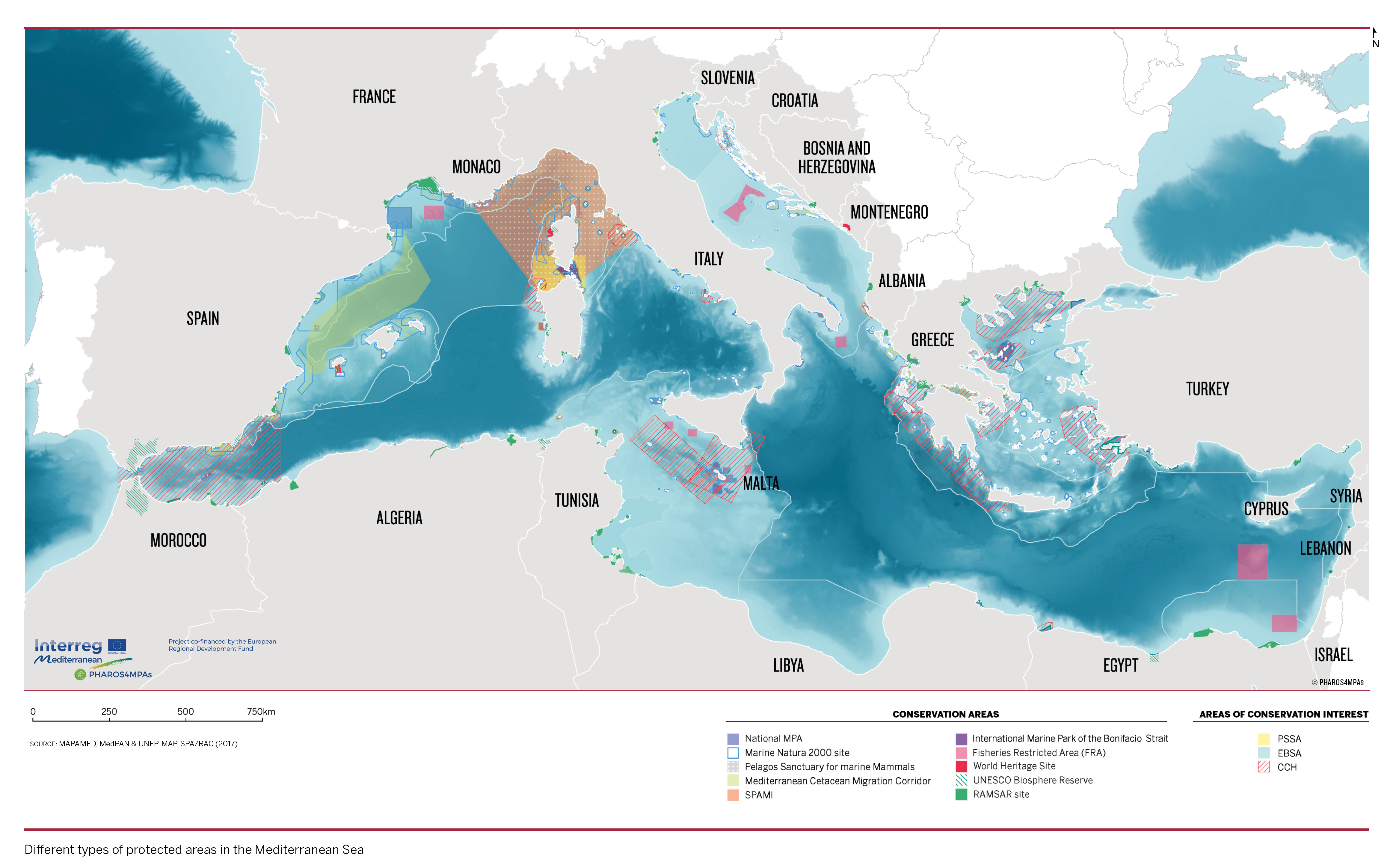The WWF is run at a local level by the following offices...
- WWF Global
- Adria
- Argentina
- Armenia
- AsiaPacific
- Australia
- Austria
- Azerbaijan
- Belgium
- Bhutan
- Bolivia
- Borneo
- Brazil
- Bulgaria
- Cambodia
- Cameroon
- Canada
- Caucasus
- Central African Republic
- Central America
- Central Asia
- Chile
- China
- Colombia
- Croatia
- Democratic Republic of the Congo
- Denmark
- Ecuador
- European Policy Office
- Finland
We want to see an effective network of marine protected areas (MPAs) across the Mediterranean to conserve and restore the health of marine ecosystems and secure the benefits they provide to people.
Like national parks and nature reserves that protect important habitats and species on land, marine protected areas (MPAs) are crucial for conserving and restoring the health of ecosystems at sea. When a portion of the sea is well protected, marine life thrives again and local communities can catch more fish.
Under the Convention on Biological Diversity (CBD), countries have committed to effectively protect 10% of their marine and coastal waters by 2020, but few in the Mediterranean are likely to hit that target. Ahead of the next CBD summit in 2020, we’re pushing for stronger protection for marine ecosystems.
As demonstrated by WWF MMI, in the last decade almost all Mediterranean countries have blatantly underperformed in their legal duty to create an adequate network of marine protected areas by 2020. Today only 1,27% of the Mediterranean Sea is effectively protected, and mainly in the northern part of the region.
Increased conservation targets to protect at least 30% of coastal and marine areas, stronger indicators of effectiveness and monitoring mechanisms and improved governance systems are some of the requirements to reverse the trend and build a healthy marine ecosystem in the Mediterranean.
READ WWF POLICY SUMMARY WITH RECOMMENDATIONS ON MPA PROTECTION.
We’re working across the Mediterranean to create more MPAs, and to ensure they’re well managed, properly funded and effective. Our goal is to create a coherent, connected MPA network across the whole of the Mediterranean that covers the full spectrum of habitats, species and geographic contexts, including offshore habitats such as seamounts.
We’ve been actively involved in setting up and managing MPAs in 10 Mediterranean countries. A key part of our work is bringing together different stakeholders – like fishers, tourism operators, local government and communities – to resolve conflicts, and supporting local people to co-manage their MPAs. In many areas, locals are now benefiting from jobs in park management and growing industries like diving and ecotourism, while small-scale fishers are starting to see the benefits of recovering fish populations.
For MPAs to achieve their full potential, the people responsible for managing them need the right skills and support.
We’ve helped build the capacity of MPA managers by supporting the creation of MedPAN, a network of MPA managers from all over the Mediterranean. It offers workshops and training on the issues affecting MPAs and organizes staff exchanges so MPAs can learn from each other. Now an independent organization, MedPAN also runs various projects and raises the profile of MPAs across the region.

READ MORE